Tiny Bugs In Bedroom
Tiny Bugs In Bedroom
If you want to prevent the spread of bed bugs…
It's important to properly identify them first.
Bed bugs resemble several other types of bugs due to their…
familiar insectoid appearance and their small size.
If you're looking for bed bugs, these pests are characterized by a red-brown or pale-brown appearance, apple seed-sized body, and lack of segmentation.
Certain other bugs will look similar, but there are specific differences you can find by looking closer.
Luckily, You can spot bed bugs with the naked eye, and seeing a bed bug is the first step in learning whether you're experiencing an infestation.
On that note – let's dive right in.
The following is a list of 11 bugs that look like bed bugs.
- Bat Bugs
- Booklice
- Spider Beetles
- Fleas
- Carpet Beetles
- Cockroach Nymphs
- Ticks
- Swallow Bugs
- Head Lice
- Mites
- Termites
1. Bat Bugs
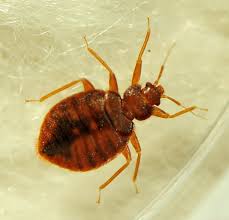
Bat bugs, apart from sharing a similar name to bed bugs, look the most like bed bugs compared with any other insect. The only discernible difference in their appearance is the longer hairs on a bat bug's head.
Otherwise, they're brown, oval in shape, the size of an apple seed, and can't fly despite possessing wing pads.
(All of which are traits bed bugs share).
However, you won't likely find bat bugs in your bedroom. Instead, as the name would suggest, bat bugs tend to feed on bats and reside in caves or other areas where bats are prevalent.
2. Booklice
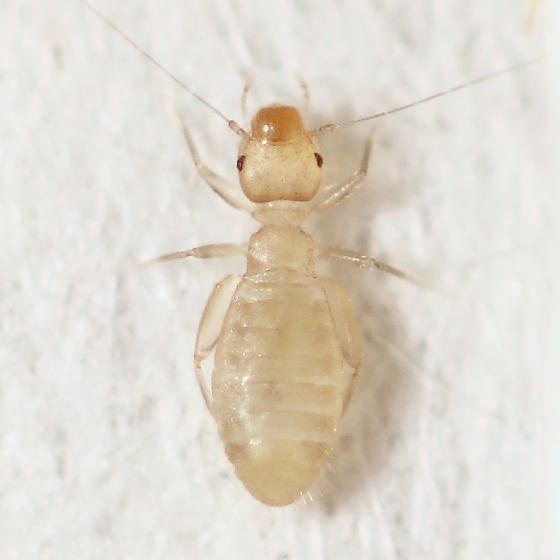
Booklice stand apart from bed bugs mainly in their shape, which is longer and thinner like a termite's, with equally long and thin antennae.
They can reach sizes of 1 to 6mm in length. Their bodies are also softer than bed bugs, making them easier to kill.
Booklice have a distinct color that is light brown, or some would say a creamy yellow.
Their heads and bodies are visibly segmented unlike bed bugs', and some have wings capable of flight.
These bugs don't bite, though when dead, their bodies could combine with dust to aggravate asthma attacks.
Unlike bat bugs, you do have a chance of finding booklice near your bed, as they often appear in areas of high humidity due to their susceptibility to dehydration.
3. Spider Beetles
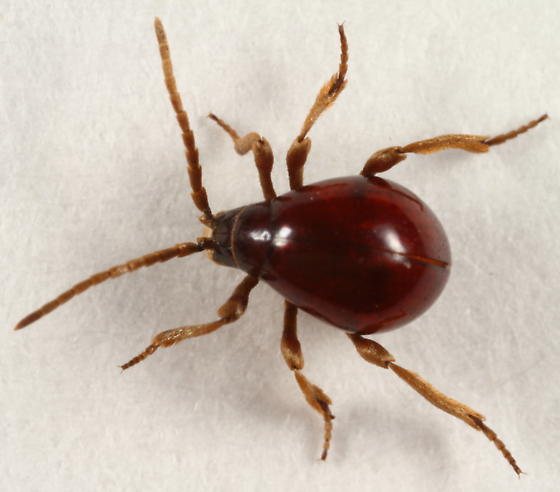
Spider beetles somewhat resemble bed bugs in their round oval shape and 1 to 5mm size, but it's relatively easy to tell these insects apart from bed bugs if you look closely enough.
Spider beetles are red-brown, or almost black, with long legs and antennae. Their bodies are also covered in hairs, with a head that's directly connected to its body.
Like booklice, some species of spider beetles can fly (and they don't bite).
These beetles tend to hang out in wooden structures where they're likely to find food. You might experience an infestation of spider beetles if your residence is poorly maintained, but they don't pose the same health risks as bed bugs.
4. Fleas
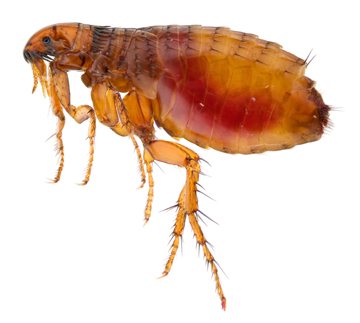
In terms of their ability to cause extreme irritation, fleas are very similar to bed bugs.
On the other hand, they're easy to tell apart from other insects. Fleas are reddish-brown, but they possess long legs and round heads, which often feature a comb like in the Cat Flea Species.
Fleas are about an eighth of an inch long and flat. Their ability to jump can make them difficult to catch.
An infestation of fleas typically occurs because your pet brought them into your home from outside.
5. Carpet Beetles
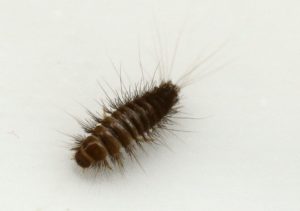
At first glance, you might mistake a carpet beetle for the alarming oval body of a bed bug, but this is another type of insect you can identify upon closer inspection.
Carpet beetles feature a black and white pattern with orange or red scales. Their heads are small and mostly hidden when looking from above.
They're around 2 to 3.8mm long and adults can fly. The only harm they cause to humans is dermatitis resulting from allergic reactions.
Carpet beetles appear on flowers and occasionally on carpeting, but they won't normally venture to your bed.
At the worst…
They might get into your house and carpeting if you bring in some fresh-cut flowers.
Each of these bugs is relatively easy to identify if you know what to look for, enabling you to determine whether you're infested with bed bugs or another type of pest.
6. Cockroach Nymphs
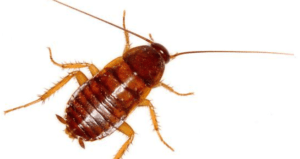
Not many people are familiar with the life cycle of Cockroaches, but it all begins with an egg. Once the egg hatches, the immature cockroach is known as a nymph, or baby cockroach.
Nymphs are bright white in color initially, and they harden and darken within a few hours.
Interesting Fact: The availability of food for cockroach nymphs within the first 10 hours has a substantial effect on the chances of their long-term survival.
German cockroach nymphs are typically less than 3mm long when they hatch. Once they darken, they are almost uniformly dark, with just a single light patch located on the back.
These insects can be found in similar ways as bed bugs, and can often be confused for bed bugs at first glance.
7. Ticks
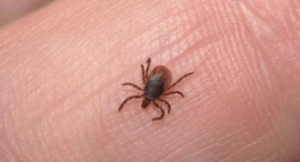
If you spend time outdoors or have pets, you need to be aware of ticks.
Similar to bed bugs, Ticks feast on human blood.
The main difference is that Ticks are known to transmit infectious diseases.
Some diseases you can get from tick bites include:
- Lyme Disease
- Rocky Mountain Spotted Fever
- Ehrlichiosis
Ticks are very small and can be difficult to see. They can easily attach to you if you walk through dense woods where bad infestations exist. They most commonly stick to you if you walk through leaves, shrubs, or tall grass.
To help protect your body from both ticks and bed bugs you should do the following:
- Wear light-colored, protective clothing.
- Tuck pant legs into socks.
- Avoid areas of infestation.
- Check yourself on occasion for any presence of insects.
8. Swallow Bugs
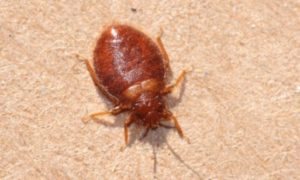
The physical traits of swallow bugs and bed bugs are extremely similar, but the swallow bug is distinguished by its antenna. It also tends to have a grayish-brown color rather than the reddish-brown of the common bed bug.
It's unlikely you will come across these creatures as they are typically found in barns and cliff swallow nests. There are cases, however, where they readily invade human structures and can bite people as well.
Swallow bugs are known for breeding through the summer, and early fall when the birds depart.
One thing that sets them apart is their bites can cause minor to severe reactions in humans.
Interesting Fact: Swallow Bugs have the special ability to survive up to 3 years without food.
9. Head Lice
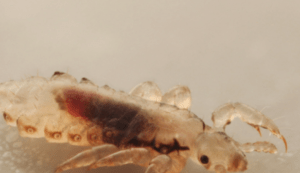
Adult head lice are about 2 to 3 mm long, and typically infest the head and neck. Similar to bed bugs, lice move by crawling, but they cannot hop or fly.
They also spread rapidly, and often if one is sighted, it means that an infestation is present.
The adult louse is about the size of a sesame seed, has six legs, and is tan to grayish-white. Females are usually larger than males and can lay up to 8 eggs per day.
Adult lice can live up to 30 days on a person's head, and they are much more food dependent. For lice to survive they must feed daily, as without meals, the lice will die in 1 or 2 days.
10. Mites
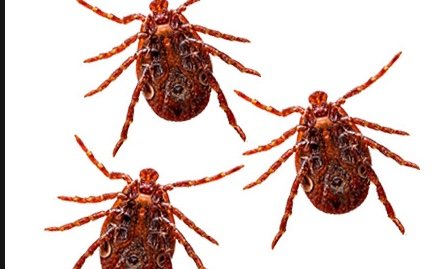
Technically "Mites" can describe a number of organisms within the arthropod family. While these creatures are mostly related to ticks, they resemble bed bugs in many ways.
Similar to bed bugs, these creatures lack wings and are quite small. Most people don't notice they have been exposed to mites until they discover the small bites on their skin.
Luckily Mite bites are mostly harmless, but they can sometimes lead to some irritation and mild swelling.
Though bed bug bites can be identified by distinct linear or zig-zag shapes, mite bites are harder to pinpoint. These bites will vary in shape, size, and pattern depending on the bite.
11. Termites
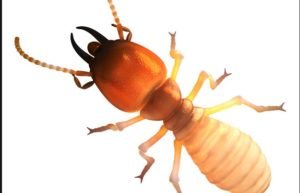
Termites are one of the more unique indoor pests. These creatures are often called "silent destroyers" in that they can be devastating to your home or property.
Other than their shape and size, termites differ from bed bugs by their food source.
Unlike human blood, termites feed on dead plants and trees. They get their nutrients from cellulose, an organic fiber found in wood. Though wood makes up the majority of their diet, they can also eat paper, plastic, and drywall .
Though termites and bed bugs can sometimes be hard to distinguish with the naked eye, it's unlikely you'll have to make that distinction.
While bed bugs come out of hiding in order to feed, termites are not usually found by accident. Since termites rarely emerge from food sources, you probably won't know you have an infestation until you come across damage during construction or an interior remodeling project.
Bed Bug Size
Let's quickly take a look at the size of bed bugs.
The average adult bed bug ranges from ¼ – ½ inch in length. Their size is very much dependent on whether they have had a recent meal.
For example:
A bed bug that has recently fed will be more balloon-like, with a reddish-brown tint, and can be above ½ inch in length.
A bed bug that has not fed recently will be flat, brown, and more difficult to see with the naked eye.
Below is a breakdown of the average size of bed bugs relative to other bugs.
(From biggest to smallest)
| Type of Insect | Size (inches) |
|---|---|
| Mosquitos | 0.4 Inches |
| Bed Bugs | 0.33 Inches |
| Cockroaches | 0.25 Inches |
| Bat Bugs | 0.23 Inches |
| Swallow Bugs | 0.18 Inches |
| Wood Ticks | 0.12 Inches |
| Spider Beetles | 0.10 Inches |
| Lice | 0.09 Inches |
| Booklice | 0.06 Inches |
| Fleas | 0.05 Inches |
Can Bed Bugs Fly?
The answer is no….bed bugs do not fly. Bed bugs do not have wings either, but they do have 6 legs, which allows them to crawl a good distance.
It's important to note that bed bugs can not jump either. Unlike other insects such as fleas, bed bugs don't have powerful hind legs.
This is one of the reasons why bed bug traps can work to capture bed bugs.
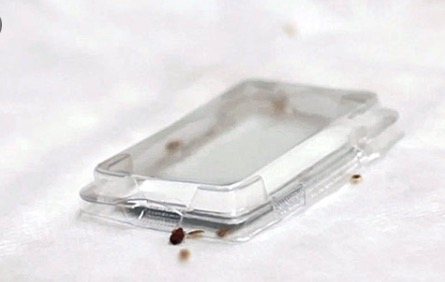
(especially when placed at the foot of the bed).
This all causes people to wonder. If bed bugs can't fly, jump, or run…
How are they able to travel and spread around the world?
These pests can transport themselves rapidly by hitchhiking on humans and their belongings. Whether it be clothes, bags, or somewhere on the human body, bed bugs are avid travelers.
These creatures have made a major resurgence lately, which is why the country is currently experiencing a bed bug epidemic.
Think you were bitten by bed bugs? Click here to learn how to properly diagnose a bed bug bite.

Source: https://bedbuglawyer.org/bugs-mistaken-for-bed-bugs/



Tidak ada komentar:
Tulis komentar